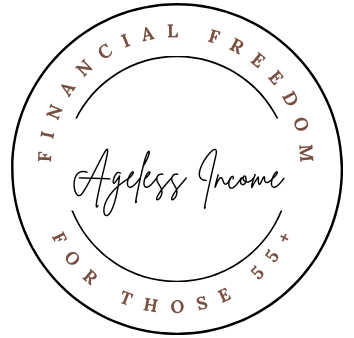
You’re eyeing retirement and you’ve got to think about how you’re going to spend those golden years. Sure, you can kick back and relax, but what about your cash flow? Have you considered investing in rental properties? This isn’t just about having a side hustle; it’s about creating a sustainable income source for the years when you’re no longer punching the clock.
Let’s start by understanding the basics of real estate income for retirement. Imagine getting a monthly check that covers your expenses and leaves a little extra for that hobby you’ve always wanted to pick up. That’s the power of rental income. But, you need to wrap your head around property management and the realities of being a landlord.
Is it really feasible to become a property mogul after you’ve said goodbye to your 9-to-5? You bet! But it takes some savvy planning. In this section, we’re going to scan the horizon and see if acquiring rental properties at your stage in life makes dollars and sense.
Lastly, before we catapult you into the intricacies of rental properties, consider this: many folks have already paved the road to a comfortable retirement using real estate. And guess what? They are living proof that this investment strategy can work well with the right approach. I’ll share some of these real-life examples, so you can visualize what’s possible with real estate in your retirement plan.
Enhancing Retirement Income: The Perks of Putting Your Money in Rental Properties
You’re probably familiar with the traditional forms of retirement income, such as pensions, 401(k)s, and Social Security benefits. But have you ever considered the potential of rental properties to augment your retirement funds? Rental properties can be a solid addition to your retirement plan, offering a reliable income source that can complement these more traditional funds.
Let’s look at some obvious benefits. For starters, if managed well, rental properties can provide a consistent stream of income that’s often more reliable than stock dividends. Plus, rents have a tendency to increase over time, which can help keep pace with inflation – a major concern for retirees. Think about it, while other retirees might worry about the purchasing power of their fixed pensions, you could be sitting pretty with an income that adjusts with the market.
In my opinion, the key to success in this venture is choosing the right property in the right location. A good rental property in a desirable area isn’t just about generating monthly income; it can also mean less worry over finding and keeping tenants. And when you’re not stressing over occupancy rates, you can focus on enjoying your retirement.
Adjusting your retirement strategy to include real estate might seem daunting at first, but don’t worry too much about the nitty-gritty details right now. Think of it as a high-level decision to diversify your retirement income. You can always adjust your approach down the road, and there’s a lot of opportunity in getting it just right.
Now, this isn’t just about making money; it’s also about keeping up with or even improving your quality of life during retirement. With the added income from renters, you could afford to travel more, pursue new hobbies, or simply spoil your grandkids even more. That’s real, tangible benefits that can make your golden years truly shine.
That’s where rental properties make a compelling case. Choose something that resonates with you, whether it’s a cozy single-family home or a chic urban condo, and you could not only boost your weekly bingo budget but also invest in your long-term happiness.
Growing Wealth Beyond Retirement: Equity, Net Worth, and Smart Leveraging
When it comes to retirement, you’re looking for security and growth, and rental properties might just be the key. Equity in real estate typically increases over time, which means your investment can grow alongside your golden years. Let’s talk about how this works and why it matters for your net worth.
As you pay down your mortgage, and if property values rise, your equity – the part of the property you truly ‘own’ – balloons. That’s money in your pocket if you ever decide to sell. But wait, there’s more. This equity can also be a powerful tool while you’re still hanging onto the property. Often, retirees can tap into this equity through a home equity line of credit (HELOC) or by refinancing to cover unexpected expenses or even invest in additional properties.
Let’s not overlook the strategy of leveraging cash with a long-term rental mortgage. I’m talking about using borrowed money to increase the potential return of an investment. For many retirees, it can sound counterintuitive to take on a mortgage. But with low-interest rates and a stable rental income, this debt can actually work in your favor. You invest a fraction of the property’s cost, and tenants cover the mortgage and expenses, all while your equity continues to rise.
A risk is present, of course. The real estate market isn’t immune to downturns. But historically, it’s shown resilience over the long haul, which is why it’s so appealing for someone with a horizon that extends decades into retirement. If you’re strategic, real estate can be less about speculation and more about calculated, sensible growth.
Tax Planning with Real Estate: Knowing the Fiscal Benefits of Rental Properties
Now, let’s break down the tax advantages that can sweeten the retirement deal for rental property investors. It’s not just about the additional income; strategic tax planning can lead to significant savings, which can make a big difference in your golden years.
First up, depreciation is a major player. You’re going to find out about how the cost of your property and improvements can be written off over time, reducing your taxable income each year without affecting your actual cash flow.
Another benefit you’ll want to note: the ability to deduct various expenses associated with the upkeep of your rental properties. I’m talking about repairs, maintenance, utilities, insurance, and property management fees, all of which can be claimed to lower your taxable income.
Don’t overlook the possibility of deducing mortgage interest. This can be a significant deduction for landlords using a mortgage to finance their rental property. By writing off the interest incurred from the loan, you can save a considerable amount in taxes.
In my opinion, it’s essential to understand the nuances of real estate taxation. So, consider consulting with a tax advisor who specializes in real estate. They can help you navigate deductions, depreciation schedules, and other complex aspects of tax law.
And if you decide to sell a property? Capital gains tax might apply, but the rules around this can sometimes work to your benefit. There are strategies, like a 1031 exchange, that can defer these taxes and keep more money in your pocket.
I really hope that you see the potential tax benefits as a truly valuable aspect of investing in rental properties after retirement. Smart tax moves, coupled with a steady stream of rental income and potential property appreciation, can significantly enhance your retirement finances.
Now, I’m not saying this path is entirely without challenges. It requires due diligence, research, and sometimes a bit of professional advice to fully capitalize on these benefits. But choose something that resonates with you, and it can be a powerful component of your retirement strategy.
As you step forward, keep in mind the perpetual nature of taxation and the importance of staying informed about changes in tax law. By doing so, you can always adjust your approach down the road and ensure that your investment continues to work hard for you.
With the right knowledge and planning, your foray into rental properties could be a game-changer for your retirement years. Thanks for walking through this journey with me, and here’s to a future that’s not only comfortable but also financially empowering!
